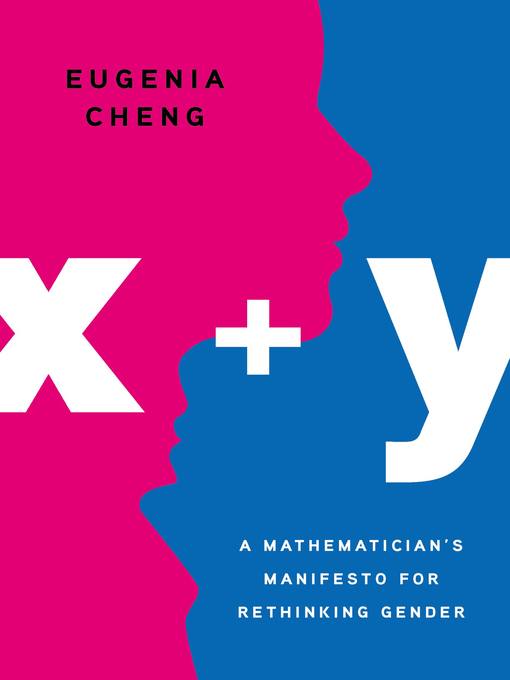
x + y
A Mathematician's Manifesto for Rethinking Gender
کتاب های مرتبط
- اطلاعات
- نقد و بررسی
- دیدگاه کاربران
نقد و بررسی

July 15, 2020
Can mathematics break down barriers to entry--in markets, in society--imposed by gender? Mathematician and math popularizer Cheng takes a positive view. "Math isn't just about getting the right answers; it's about dreaming up different worlds in which different things can be true." The author writes inductively of her experiences as a woman in a field dominated by men to arrive at an alternate world in which gender is not a determinant in who fails, who succeeds, who has access, and who does not. A specialist in category theory--a branch of mathematics in which theories and not theorems govern--Cheng proposes that many arguments about supposed gender absolutes can be reframed. For example, she breaks down the logical implications in the syllogism that says that men are better at math than women, because they are better at systematizing--ergo, "being a man implies being better at math." But what if the frame were moved to encourage decomposition of the terms? "Men have been observed to be statistically more likely to be stronger at systemizing than empathizing, for some very specific definitions of these words," a strength that often resolves in ways such that "we might expect more men than women to become mathematicians." The onus is not on numeracy but instead on structures that push people into different endeavors. In a spry--and not number-heavy--text, Cheng suggests that inherent ability is not as important as how math is generally taught: the ponderous lecturer at the front of the class, the mostly bewildered students trying to follow along. She proposes a "congressive," group-oriented solution to problem-solving to replace the "ingressive" model, which presupposes that learning is a sort of Darwinian matter of survival of the fittest. Most truisms about gender difference, she notes, are "because of bias, not biology," and the reframing she suggests makes this bias clear. A carefully developed argument that urges us to discuss character traits without reference to gender.
COPYRIGHT(2020) Kirkus Reviews, ALL RIGHTS RESERVED.

Starred review from August 1, 2020
On yet another adventure in using the logic of math to address social and emotional issues, author Cheng (How to Bake Pi, 2015) takes on gender equality. Using mathematical models that consider ingressive (personal, self-oriented) and congressive (community-oriented, good-of-the-group) traits, Cheng determines definitions, looks for patterns, creates models, and states her ultimate goal as the eradication of gender bias?and this is just in her book's introduction. She spends the next 150 pages lampooning assertions regarding supposed gender-based qualities and gender-determined capabilities that have risen from patriarchal social structures, falsified research, biased interpretation of data, and systemic discrimination. She frames her thinking with relatable examples and anecdotes and proffers a plea for more congressive thinking and action. She cites historic disasters that led to positive outcomes (the Black Death of the Middle Ages made the Renaissance possible; WWII opened doors for women) and wonders if the current pandemic and compliance/non-compliance with public health mandates might be the impetus for lasting social change. She ends with suggestions on how to become more congressive: look for similarities, not differences; seek to support and not advise; create mutually beneficial situations; and practice charity. Her arguments are both passionate and logical.(Reprinted with permission of Booklist, copyright 2020, American Library Association.)

March 1, 2020
Author of The Art of Logic in an Illogical World, Cheng works in both male-tilted mathematics and female-tilted art; she's a pianist and scientist in residence at the School of the Art Institute of Chicago. Here she addresses gender inequality by calling on her field of study, category theory, which focuses on context and ultimately dimensionality; a cube casts a diamond or square shadow, depending on one's perspective. As she argues, we need to bring that same understanding of perspective when we look at women in positions of power and rethink contexts to assure true equality.
Copyright 2020 Library Journal, LLC Used with permission.

























دیدگاه کاربران